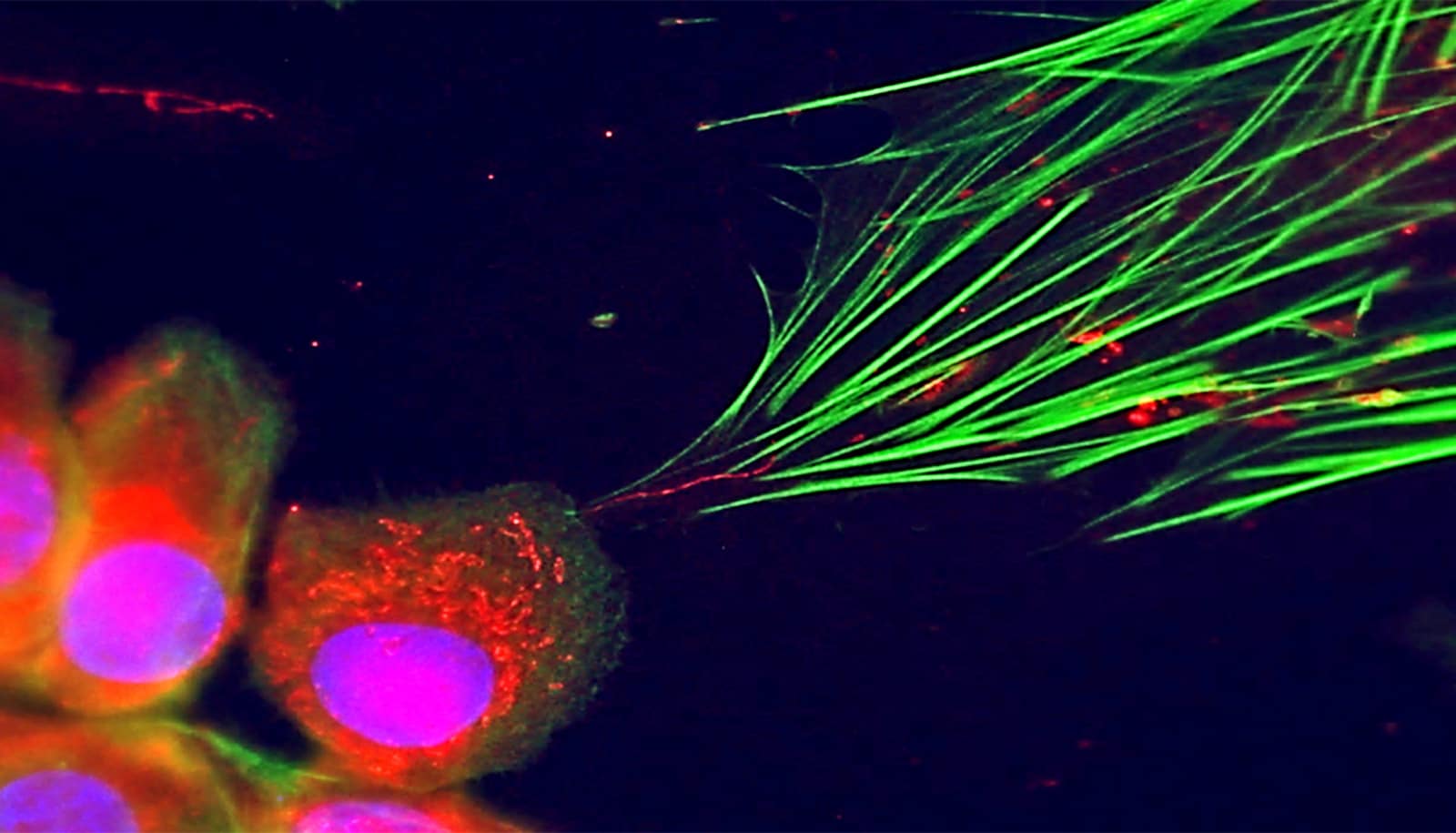New research gets scientists closer to creating better pancreatic cancer treatments.
Last year, researchers at the University of California, Riverside, developed a novel “molecular crowbar” strategy to degrade the oncogenic enzyme Pin1, a protein that is overexpressed in many tumors including pancreatic cancer.
They designed compounds that bind to Pin1 and destabilize its structure, causing its cellular degradation.
This approach not only targets cancer cells directly but also addresses tumor-supporting cells like cancer-associated fibroblasts and macrophages where Pin1 is active, potentially overcoming the treatment resistance posed by the fibrous tumor microenvironment in pancreatic cancer.
The team led by Maurizio Pellecchia, a distinguished professor of biomedical sciences in the School of Medicine at the University of California, Riverside, has now collaborated with a team of scientists led by Mustafa Raoof at City of Hope in Duarte, California, to further test these degraders in pancreatic and gastrointestinal cancers with the goal of developing a new class of therapeutics that can “remove” harmful proteins rather than just block them.
Thanks to a shared U54 grant from the National Cancer Institute, which is part of the National Institutes of Health, the UCR and City of Hope teams were able to advance their earlier Pin1 inhibitors by improving their plasma stability. Subsequently, the teams could also study the inhibitors’ mode of action on cancer cells and cancer-associated fibroblasts derived from patients’ biopsies at City of Hope.
Because Pin1 regulates the activity of both oncogenes and tumor suppressors in cancer cells and the surrounding stroma, the researchers studied the efficacy of their novel Pin1 degrading compounds in a mouse model of pancreatic cancer peritoneal metastases. Peritoneal metastases are a common and devastating complication of pancreatic, gastrointestinal, and other abdominal cancers for which few effective treatments exist.
“We found that these degraders suppress pancreatic cancer peritoneal metastases,” Pellecchia says. “Hence, we believe that our agents could be translated into effective therapeutics against peritoneal metastases not only in pancreatic but also against other types of gastrointestinal and abdominal cancers that develop peritoneal metastases.”
The researchers published their findings in the journal Molecular Therapy Oncology.
“In advanced colorectal and most gastric cancers, peritoneal metastases often develop and show resistance to systemic chemotherapy, leading to markedly worse outcomes,” says Pellecchia, who directs the Center for Molecular and Translational Medicine and holds the Daniel Hays Chair in Cancer Research at UCR.
“In pancreatic cancer, patients with peritoneal metastases have a mean survival of less than three months.”
Raoof of City of Hope says pancreatic cancer is a formidable foe and takes most lives it affects.
“Earlier studies had shown that targeting Pin1 holds promise in making pancreatic cancer more susceptible to chemotherapy and immunotherapy, but more potent drugs were needed for translation in the clinic,” he says.
“As one of the nation’s leading centers for pancreatic cancer research, City of Hope was eager to partner with Dr. Pellechia’s team to test their highly potent Pin1 inhibitors in mouse models. These findings demonstrate proof-of-concept activity and reinforce our shared commitment to advancing novel therapies toward clinical trials.”
Source: UC Riverside



